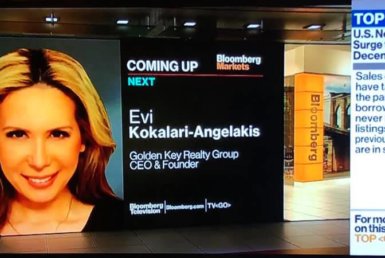Eight Things To Watch Out For When Leasing A Commercial Property

FORBES Real Estate
Eight Things To Watch Out For When Leasing A Commercial Property
Successful executives in the real estate industry from Forbes Real Estate Council share firsthand tips & insights.
Today, many businesses — especially startups — are going the co-working office space route for a variety of reasons, including cost and low lease commitment. However, there are also many business models and company structures which may not fit so well to open shared workspaces. In that case, a company may need to lease their own commercial property in order to obtain the workplace culture and atmosphere that is ideal.
Not all commercial property lease opportunities are created equal, however. Signing any lease involves some level of incurred risk, but it is important to know potential risk factors before making an informed decision. To help you review a potential commercial lease or purchase, we asked members ofForbes Real Estate Council to weigh in with key things lessors or lessees should look out for and why. Here’s what they said:
Members discuss a few things to watch for when leasing commercial property.
1. Hidden Fees
Before signing a lease, make sure you include an exhibit breaking down all of the landlord fees (rent, percentage rent, management, admin, CAM, insurances and advertising) for your space. Before you sign a lease agreement, hire an experienced commercial real estate attorney who can help you identify whether the terms of the lease are fair or whether the lease could be costly to your business. -Pamela J. Goodwin, Goodwin Commercial
2. Guaranteed Tenant Improvements
If you are considering buying a commercial property, be sure to watch out for any guaranteed tenant improvements that are owed later down the road by the owner. You do not want to purchase an asset without realizing you are incurring a debt to the current tenant base. – Hunter Thompson, Cash Flow Connections
3. Lack Of Clearly Specified Goals
Spend proper time to clarify your business’ objectives. One of the most common mistakes tenants make is not having properly specified goals so that the office space does not end up truly meeting the company’s needs. How much additional space might be needed in the next three to five years? Is there a possibility of expansion? Always evaluate the bigger picture of your commercial space. – Alex Chieng, Cresa
4. Maintenance And Repairs
One of the main things would be maintenance and repairs. These significant and unexpected expenses could be detrimental to a new or small business’ bottom line. For example, a new commercial HVAC unit could cost between $4,000-$7,000 including installation. As such, tenants should try to negotiate a cap on their out of pocket or find a place where there is a warranty in place. – Catherine Kuo, Elite Homes | Christie’s International Real Estate
5. Tenant Credit And Financial History
We always look at the credit of the tenant and their financial history, which helps in understanding the risk of default. “Credit” tenants, otherwise known as those with great credit and financial history (often public companies or large private companies) are the least risky and will often provide more value to the property as buyers will often purchase at lower cap rates due to perceived risk. – Chris Powers, Fort Capital LP
6. Default/Breach And Cure/Remedy Terms
Understanding default/breach and cure/remedy language of a lease agreement is vital to the success of any commercial operation. Unexpected events often occur at a commercial property that could impact operations and terms of the lease agreement. Understanding the process of how to cure/remedy a breach of lease terms could be the difference between a permanent default and ongoing tenancy. -Bryan McLaren, Zoned Properties
7. Pass-Throughs
A pass-through is when the owner pays for some or all utilities and then passes it through to the tenant. Generally speaking, in office buildings or shopping center, the percentage of the common charges you should be responsible for should equal the percentage of the space you are renting. It is important that you verify this detail beforehand and make sure it is clearly stated in your lease. – Evi Kokalari-Angelakis, Golden Key Realty Group
8. Ancillary Terms
Rent is only one aspect of a commercial lease. Ancillary terms can have a significant impact on how much you pay the landlord each month. Things like maintenance costs, rent hikes, improvement reductions, unexpected repairs and custodial services can add hundreds to thousands of dollars a month to your rent. Think like a lawyer, or better yet, hire one to protect your interests. – Gary Beasley, Roofstock


Join The Discussion